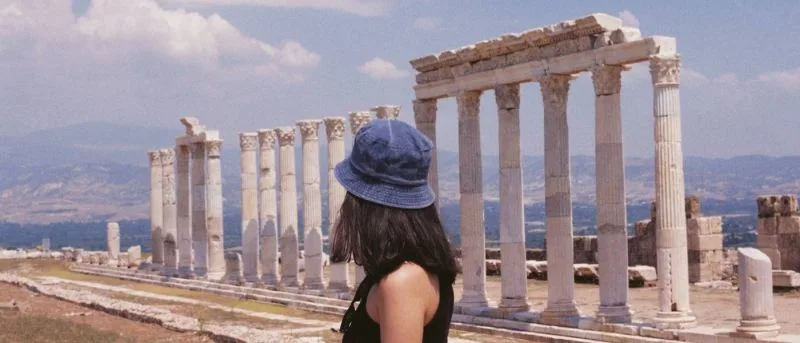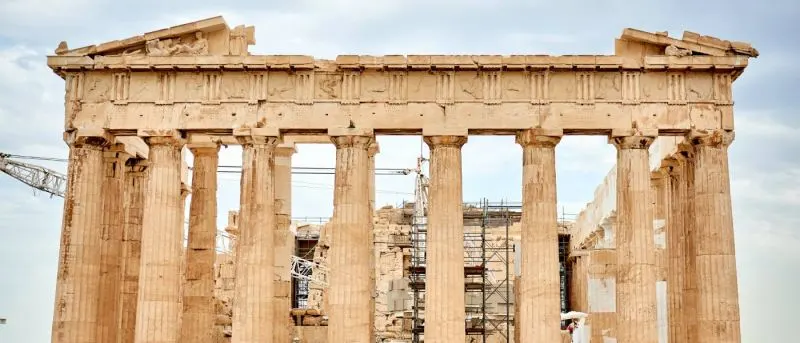Athens Travel Guide: Cradle of Western Civilization
Athens is one of the oldest cities in the world, having been inhabited since the Neolithic period. It is also known as the cradle of Western Civilization, having played a key role in the development of democracy, philosophy, literature, art, and science.
.jpg)

Athens is one of the oldest cities in the world, having been inhabited since the Neolithic period. It is also known as the cradle of Western Civilization, having played a key role in the development of democracy, philosophy, literature, art, and science. The ancient city of Athens has had a huge impact on the development of democracy, philosophy, the arts, and architecture, among many other aspects of life. From the Acropolis to the Parthenon, Athens has a long and rich history that has had a major influence on our modern world. In this wiki post, we’ll explore the history, architecture, and culture of Athens, and why it’s considered the birthplace of Western Civilization.
Early History
Athens is one of the oldest cities in the world and is often referred to as the “cradle of Western civilization”. It has been inhabited for more than 3,000 years and was a major center of trade and learning during the classical period. Athens has had a long and storied history, with many famous events occurring within its city walls.
In the 8th century BC, Athens emerged as a powerful city-state ruled by an aristocratic family known as the Eupatrids. These rulers were responsible for establishing the first formal democracy in Greece, which ultimately led to the foundation of the Athenian Republic. This new government changed the course of Greek history by encouraging the development of art, philosophy, and other cultural pursuits.
During the 5th century BC, Athens experienced a period of intense political and cultural activity known as the Golden Age. The city became a hub for scientific research and its citizens gained recognition for their contributions to literature, art, and architecture. This period also saw the construction of many iconic structures including the Parthenon, Temple of Athena Nike, and Propylaea.
By the 4th century BC, Athens had become a powerful empire with colonies all over the Mediterranean region. In 338 BC, it was defeated by the Macedonians and fell into decline. After centuries of political turmoil, Athens eventually regained its status as a cultural center in the Roman Empire. Despite its fall from greatness, Athens continued to be an important center of trade and commerce throughout the Middle Ages. Today, it is still recognized as one of Europe's most important cities and has been designated a UNESCO World Heritage Site.

The Athenian Empire
In the 5th century BC, Athens reached the height of its power and influence as the leader of the Athenian Empire. Under the leadership of statesmen such as Pericles, the city became a center of culture, learning, and philosophy, with famous figures such as Socrates, Plato, and Aristotle living and working there. The Acropolis, the hilltop fortress that looms over the city, was home to many of the city's most important buildings, including the Parthenon, which was dedicated to the goddess Athena and is considered one of the greatest architectural achievements of the ancient world.
The Parthenon
The Parthenon is the most iconic monument in Athens and stands proudly atop the Acropolis. It is a temple dedicated to Athena, the goddess of wisdom and patron goddess of the city of Athens. It was built in the 5th century BC and is considered one of the finest examples of Ancient Greek architecture.
The temple itself measures 220 by 107 feet and has 8 Doric columns along its front, 17 columns along its sides, and 8 columns along its rear. Inside, there is a large central chamber, where votive offerings were made to Athena.
The Parthenon was used as both a temple and a treasury during its lifetime. It also served as a focal point for religious festivals and other important public events. It was at the Parthenon that the first democratic assembly in Athens was held.
The Acropolis
The Acropolis of Athens is an ancient citadel located on a rocky outcrop overlooking the city of Athens. It is the most prominent archaeological site in the city and was once the center of Athenian civilization.
The Acropolis is home to some of the most iconic monuments of ancient Greece, such as the Parthenon and the Erechtheion. It also houses several other notable structures, such as the Propylaea, the Temple of Athena Nike, and the Odeon of Herodes Atticus.
The Acropolis is more than just a collection of ruins; it is an integral part of Athenian history and culture. Throughout its long history, the Acropolis has witnessed numerous battles, rebellions, and social changes. In addition, it was an important site of worship for the ancient Greeks, with many shrines and temples dedicated to their gods. The city of Athens, Greece is home to many incredible places and sites that are worth exploring. While the Acropolis and Parthenon are certainly the main attractions, there are also a plethora of other amazing sights in this ancient city. Here is a list of some other notable sites in Athens:
The Temple of Olympian Zeus
Athens, the ancient capital of Greece, is a destination brimming with history and culture, offering visitors a wealth of captivating places and sights to discover. One of these is the Temple of Olympian Zeus, an impressive example of ancient architecture dating back to the 6th century BC and once the largest temple in Greece. Built to honor the god Zeus, this temple stands tall today, offering a glimpse into the grandeur of ancient Greek architecture.
The National Archaeological Museum
Lastly, the National Archaeological Museum, housing a vast collection of artifacts from Greek antiquity, including sculptures, pottery, coins, jewelry, and more, is a fascinating place to visit for history enthusiasts. The museum is home to many of Greece's most significant archaeological finds and is an excellent way to learn about the country's rich history and culture.
Decline and Revival
After the fall of the Athenian Empire, the city went through a period of decline. However, it was later revived during the Roman period and remained an important center of culture and learning during the Byzantine and Ottoman periods. In the 19th century, Athens underwent a major renovation and modernization, with the construction of many new public buildings and the establishment of a university

Modern Athens
Today, Athens is a bustling metropolis with a population of over 3 million people. It is home to many museums, theaters, and other cultural institutions, as well as a vibrant nightlife scene. The city is also a popular tourist destination, with millions of visitors each year coming to see its ancient monuments and soak up its rich history and culture. Some of the must-see places in Athens include the Acropolis and the Parthenon, the Ancient Agora, the National Archaeological Museum, and the Monastiraki Flea Market.
Conclusion
Athens is a city with an incredibly rich history and culture. From its earliest settlements to its golden age as the center of the Athenian Empire, and its subsequent periods of decline and revival, Athens has played a significant role in shaping Western civilization. Today, it continues to be a major center of culture, learning, and tourism. It is a must-see destination for anyone interested in ancient history and culture, and it offers a unique blend of the old and the new, making it a fascinating place to visit.
Customize Your Dream Vacation!
Get in touch with our local experts for an unforgettable journey.
Plan Your Trip

